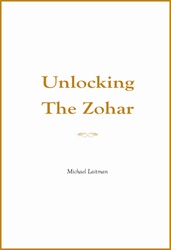Kabbalah Is a Practical Scientific Method
Today many people still associate Kabbalah with mysticism, or blind belief. The perception of reality is a topic that clearly distinguishes the wisdom of Kabbalah from philosophy, religion, and science. Kabbalah is a practical study method that leads a person stage by stage through one’s personal development. Like any other scientific method, Kabbalah instructs the researcher what to do, identifies which results can be expected, and explains the reasons for them. It does not offer descriptions of theoretical states whatsoever—states that one cannot perform de facto and in complete awareness.
How Kabbalah Differs from Religion and Philosophy
The “Preface to The Book of Zohar” divides the recognition of reality into four levels: matter, form in matter, abstract form, and essence. Also, it defines the boundaries within which correct perception of reality is possible: in matter and in form in matter.
Abstract form and essence cannot be perceived clearly or in a way that can be monitored, hence The Zohar does not deal with them at all. Conversely, philosophy does discuss abstract form, and religion deals with the essence. Thus, the wisdom of Kabbalah completely differs from philosophy and religion in that it deals only with what can be realistically, scientifically perceived.
The Difference Between Kabbalah and Standard Science
And what about the wisdom of Kabbalah compared to science? There are similarities and there are differences. The similarity is that a person does not imagine what comes into the desire, but studies it. The difference is the type of desire. Worldly science, the science of the corporeal world, studies what comes into the internal, egoistic desire. The wisdom of Kabbalah studies what comes into the outer desire.
In Kabbalah, research begins only after a person has bonded with the other desires. The wisdom of Kabbalah is called “the wisdom of truth” because it studies the true reality, not the imaginary one, which depends upon and is limited by our will.
In Kabbalah it Is the Researcher who Must Change in Order to Perform Research
In corporeal science, a person might be a cruel and mean individual, yet a great scientist. In Kabbalah, the research depends on the extent to which we change. The more we can depart from self-love toward love of others, the more we will succeed in studying what is found outside of us.
Our personal correction and the attainment of wisdom are inseparable. Only if one corrects oneself does one perceive the whole of reality. The 125 degrees of spiritual attainment are actually 125 degrees of correcting the connection between the attaining individual and all the others.
Whether one is a person who cannot read or write, or a brilliant scientist, a complete fool or a great scholar, is completely irrelevant. Only when one corrects oneself in relation to others does one actually become wise. This does not mean that Kabbalah does not require intellect. However, it is a different kind of intellect, one that comes as a result of correcting the desire.
The Book of Zohar Provides Power to Change Ourselves
To perceive the actual reality, the world of truth, we must come out of ourselves and begin to know what really exists. Then we will discover that life does not depend on one’s body, one’s senses, one’s inner, egoistic will, or one’s memory. Rather, life depends only on the extent to which one is connected to all that exists outside—to others’ desires.
Using The Book of Zohar, which provides us with the powers to realize the law of Nature called “love thy friend as thyself,” we transcend this fictitious reality and move towards perception of the real world. Although our corporeal body may die, it will not interrupt our ability to live in the real world. Our spiritual life continues because we will already be living in a great will, a higher one, and there is where our true self is found.
 “Kabbalah Is Not Religion, Mysticism, or Philosophy” is based on the book, Unlocking the Zohar by Dr. Michael Laitman.
“Kabbalah Is Not Religion, Mysticism, or Philosophy” is based on the book, Unlocking the Zohar by Dr. Michael Laitman.


Dear Sirs,
Thank you for clear informations about the Kabbalah, what I haven’t heard until recently.
With best regards
Askari